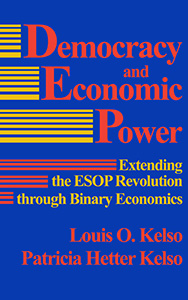by Louis O. Kelso and Patricia Hetter
The city may be the antithesis of nature, but its artifacts are no less eloquent. There is a treatise in the knife-ripped bus seat; a monograph in the charred hallway carpet in a middle-income apartment building where some rents are subsidized but most are not. The vandalized pay phone that won’t work speaks a message nevertheless; so do the broken aerials and slashed tires of the big cars night-parked along an exclusive street. The shattered school windows, the burned-out branch library, the pilfered museum, the chained-down park trees, the zoo animals which must be protected from the public like chiefs of state — these are signs, portents and manifestos. They proclaim that growing numbers of people no longer identify with society or its institutions; that they are — or feel — socially and economically beyond the pale, that they are angry at finding themselves outside — angry at themselves and at those who still have, or seem to have, status and place.
Violence — against self, others, things or institutions — is only one manifestation of the fury people feel at being unneeded, insignificant and left out. Man’s primary psychological need is to be needed; for most people, that means economically needed. Alienation, though worldwide, is most rampant in the United States, not because Americans are especially predisposed to violence, but because their economy is the most technologically advanced. Technology’s very function is to make people — as workers — unneeded in production; substituting things (machines, structures, etc.) for labor is the most effective way of raising output while cutting costs. The economically disconnected have always known that alienation was intimately related to technological change. The very name of the malaise suggests its cause.
In law, to alienate is to convey, transfer or divert a right or thing from its original possessor to another. Loss is inherent in the concept, as well as gain. In transferring to machines the physical and mental tasks once performed by labor, technology has eliminated much of the routine drudgery that once condemned most humans to dawn-to-dark toil.
That is a gain. Technology also — at least potentially — can produce for the many a level of affluence kings could not command even 400 years ago — a fact anyone who saw the recent Tudor Cycle on television can readily appreciate. Longer life, more robust health and dentistry are gains.
But on the debit side, technology robs man of his primordial productive power on which his dignity and morality — not to mention income — historically depend.
Democratic nature gave every person born the power to work. In diminishing the value of that gift — and in the absence of compensating institutions designed to restore the lost productive power which a man’s own labor power represents to him — technology has alienated man not from the fruits of his labor, as Marx thought, but from his only inherent source of productive power. In substituting capital input for labor input, technology, combined with conventional financing techniques, diverts to the few — the owners of capital — the income that once went to the many, along with the security and dignity that the economically productive have. Using politics to accomplish income redistribution does not reverse this alienating process.
It is hardly strange that the economically disconnected are sending signals of disaffection, diminishment and loss to those whom they have been encouraged to believe are running the Establishment. Their diminishment and loss are real. The mystery lies in the dumb incomprehension of society’s so-called leaders. With only a few exceptions, those to whom the message is beamed seem to think that the disconnected are demanding phony jobs or welfare. Actually, the demand is for institutions that will plug them back into the system as honest producers, not as parasites on taxpayers, corporations or government.
There is only one way to restore labor’s lost or declining productive power. That is through legitimate individual acquisition of the ownership of the machines, land and structures that technology is constantly multiplying and making more productive.
People are hungering for property — for a secure, permanent and independent link with spaceship earth that ownership represents and which only ownership can protect or defend. It is humiliating to possess nothing, to own nothing, and hence to produce nothing and to count for nothing. “Everything has a master above, everything is locked with a key,” despairs a Peruvian poet. That is what the alienated are saying. That is the symbolic meaning of violence.
The late J. Edgar Hoover pointed out that the real target of militant extremists is business. Business, banking, finance, the stock exchange — these are the essence of the hated Establishment. Mr. Hoover supposed that, if business were better understood, the hostility would subside. We think that, if the dissidents knew the whole truth about business and finance, they would be even more radicalized than they are, and the rest of society with them.
Each year in the U.S., about $100 billion worth of new productive capital is brought into existence. Traditional corporate finance sees to it that ownership of this new productive power is vested in the five percent of families who already own most of the U.S. economy. We fail to build productive power into those with needs and wants, the economy’s potential customers, while super-stimulating labor-destroying technology.
This is the invisible violence of corporate finance. The visible violence that is turning America into a battleground is the inevitable result of this long-defective corporate strategy. If business, labor and finance but recognized the nature of the problem, benign change is easily and quickly possible.
— Originally published in THE WASHINGTON POST, June 18, 1972

